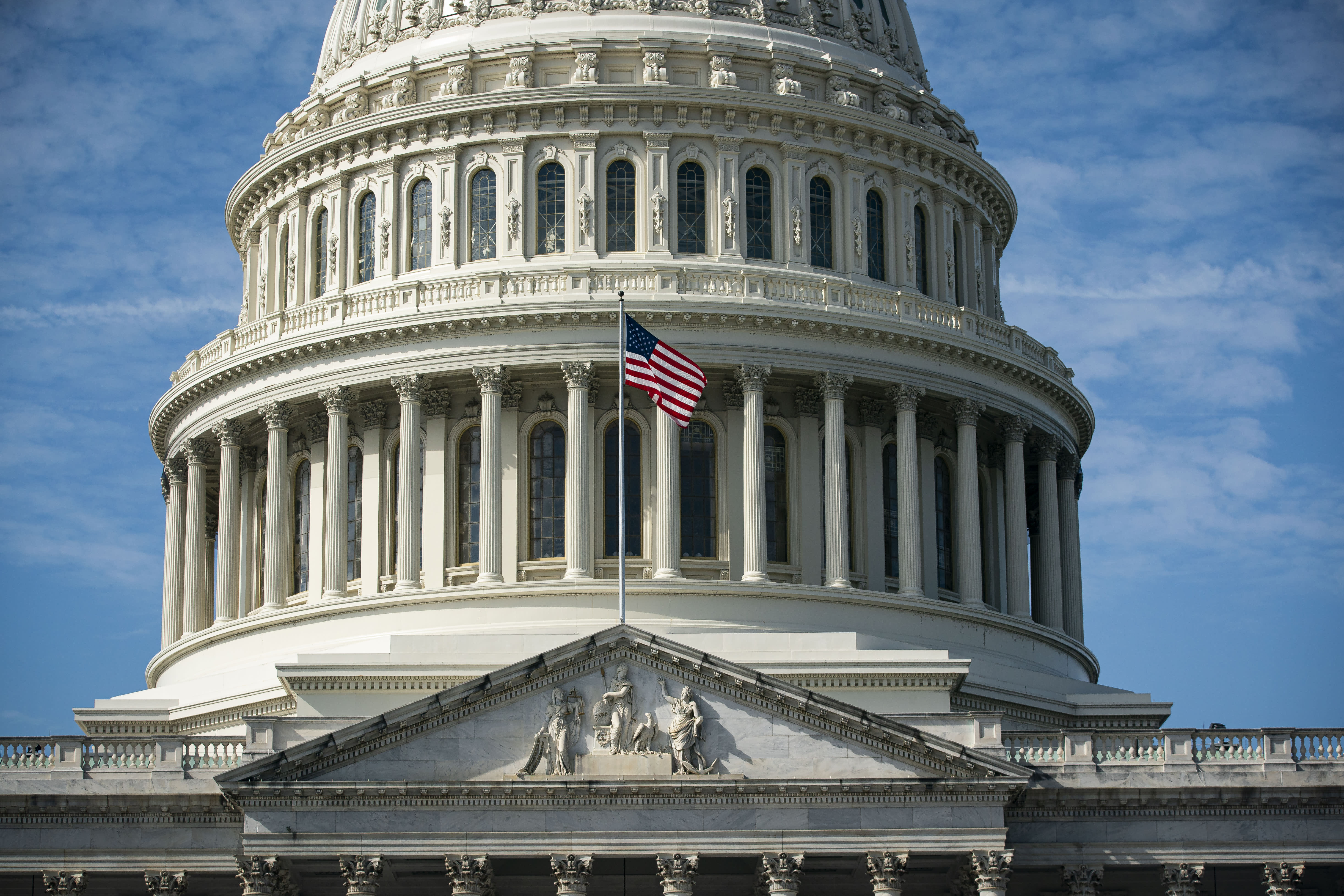The U.S. Capitol in Washington, D.C.
Al Drago/Bloomberg via Getty Images
A new bipartisan retirement bill has perks for seniors and savers shouldering student debt.
The legislation, proposed by House lawmakers on Tuesday, would raise the age at which seniors must start drawing money from their 401(k) plans and individual retirement accounts to 75.
Under current law, savers must take these annual required minimum distributions beginning at age 72.
The bill, dubbed the Securing a Strong Retirement Act of 2020, would also let businesses pay a 401(k) match to workers paying off student loans, even if those borrowers aren’t saving in the company retirement plan.
More from Personal Finance:
Coronavirus slows pace of college tuition increases
Early vaccines for Covid likely to be free for Medicare beneficiaries
Millions poised to lose unemployment benefits at year’s end
“The idea is that employees who are overwhelmed with student debt may not realistically be able to save for retirement, and thus are missing out on available matching contributions,” according to a summary of the bill’s contents.
The legislation was proposed by Rep. Richard Neal, D-Mass., who chairs the House Ways and Means Committee, and Rep. Kevin Brady, R-Texas, the ranking member of that tax-writing committee.
The Strong Retirement Act of 2020 comes on the heels of another bill, the Secure Act, that President Donald Trump signed into law late last year. That law, among other things, raised the mandatory withdrawal age to 72 from 70½.
RMDs
The new House bill makes some other tweaks to RMDs.
For example, those with lower 401(k) or IRA savings (less than $100,000) wouldn’t have to take distributions.
The bill also increases the charitable donation seniors can count toward their annual RMD. Current law allows savers to make such a “qualified charitable distribution” of up to $100,000 annually from an IRA. The bill would up the amount to $130,000 a year and allow these charitable distributions from qualified retirement plans like a 401(k).
Under current law, savers over age 50 can put more money in retirement plans than their younger counterparts by way of a catch-up contribution. (The catch-up contribution limit in 2020 is $6,500.) The House bill would allow those over age 60 to contribute more — up to $10,000, which would be indexed for inflation.
The wide-ranging bill contains several other retirement-related measures, such as: allowing businesses to use financial incentives like gift cards to encourage workers to save in a 401(k); requiring newly established 401(k) plans to automatically enroll workers; increasing a tax credit available to some 401(k) savers; and creating a sort of “lost and found” system to help pair workers with 401(k) accounts they may have accidentally forgotten or left behind.
